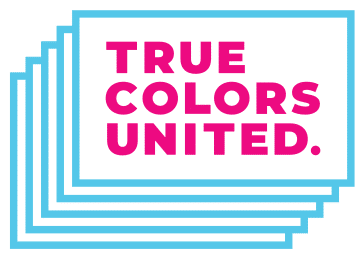CALL TO ACTION: International Transgender Day of Visibility
Download our TDOV Social Media Templates to raise awareness on your social channels and to your audience.
TDOV Social Media TemplatesInternational Transgender Day of Visibility | March 31, 2024
So far this year, nearly 500 anti-LGBTQ+ bills have either been introduced, are advancing across House and Senate floors, or have passed, across the United States. To put the severity of this into perspective, last year there were 503 anti-LGBTQ+bills introduced, with over half of them targeting trans youth. We are seeing that same volume in just two months this year. Of the nearly 500 anti-LGBTQ+ bills that are advancing across the country, 116 of them are directly aimed at restricting the rights of the trans community. This targeted legislation includes:
- Banning gender-affirming healthcare
- Banning trans students from accessing appropriate bathrooms
- Banning trans students from participating in school sports
- Banning LGBTQ+ content in school curricula
- Criminalizing parents for supporting their trans children’s identities by redefining that support as child abuse
- Requiring school employees, including teachers and counselors, to out students who are questioning their gender identity to their parents, regardless of considerations of safety
- Banning nondiscrimination policies that protect people based on sex, gender, sexual orientation, gender identity, gender expression, or sex characteristics
- Allowing “religious” discrimination based on sex, gender, sexual orientation, gender identity, gender expression, or sex characteristics.
- Defining sex under state law in ways that reduce people assigned female at birth to their reproductive organs and their ability to have children – opening the door to the likelihood of mandated discrimination against trans people
- Denying the legal existence of transgender individuals by requiring individuals to identify as their sex assigned at birth instead of their gender on their driver’s licenses and ID cards
All of this targeted legislation increases the risk and incidence of trans youth becoming homeless and interferes with homeless trans youths’ access to the resources they need to thrive. Transgender people want what we all want: the freedom to be able to go about their lives free from violence and discrimination.
No Pride for some of us, without liberation for all of us!
Marsha P. Johnson
As an advocate for trans rights, it’s important to stay informed about anti-trans legislation and stand ready to fight back against harmful and dehumanizing legislation. Here are some critical action steps you can take:
Get educated & educate others.
As you continue learning about the severity of anti-LGBTQ+ and anti-trans bills being advanced across the country, educate others on why these bills are so harmful. There are several organizations across the country offering resources, guides, and educational materials that promote community understanding and acceptance of transgender and gender-diverse people. You can find a list of resources here.
Stay informed.
There are several ways to stay informed and find out when bills are being introduced, discussed, and moving through the legislative process. You can find out where and when bills are being discussed and show up to watch them online or in person at your state legislature. You can also look up active bills and track their progress via LegiScan.
Reach out to your legislators.
If you live in a state where anti-trans bills are being considered, reach out to your state legislators and tell them about your concerns. You can call your state legislator and ask for a meeting, visit legislators during office hours, or send an email. It’s also important to remember that even if asking works initially, you will likely have to keep the pressure on your legislator to ensure follow-through. You can find your state legislators here. In every U.S. state besides Nebraska (Nebraskans are represented by one state legislator total), residents are represented by two legislators – a state representative and a state senator. Be sure to contact both!
Engage in digital advocacy.
Use digital tools for advocacy and organizing! Educate your friends and family by posting about these bills on social media, and include ways they can take action too. Whichever social media platforms you use, there’s a way to share this information out. Visit our Trans Day of Visibility social media templates to get started.
Learn more about taking action by reading through our Advocacy Toolkit.
